The chancellor will unveil a public spending hole on Monday, which speculation suggests could hit £20bn.
Get Started for FREE
Sign up with Facebook Sign up with X
I don't have a Facebook or a X account

 Your new post is loading... Your new post is loading...
 Your new post is loading... Your new post is loading...
S&P Global flash composite purchasing managers’ index shows July rise for manufacturing and services sectors
Graham Watson's insight:
The latest purchasing managers' index data suggests that the election has seen an uptick in economic activity and hints at growth picking up. Even more favourably, there's also the suggestion that prices might also be falling too, raising hopes of an interest rate cut.
The energy secretary’s plans to install thousands of pylons in unspoiled rural areas is facing a huge backlash
Graham Watson's insight:
This could be Micro- or Macroeconomic, but I've put it here because the focus of the article is the green transition of the economy as a whole, and thus it has obvious supply-side implications. In the article, the Observer looks at how upgrading the power distribution infrastructure is likely to be opposed by a number of councils, and has the potential to thwart the new Labour government's plans to decarbonize electricity generation.
Drop of 1.2% in June comes as households rein in spending during cost of living crisis
Graham Watson's insight:
Retail sales figures remain flat with the cost of living crisis having an effect - that and the inevitable chilly weather playing a part too.
Some economists believe the UK leg of Taylor Swift’s Eras tour led to higher prices in June – but the full picture is more complicated
Graham Watson's insight:
Today's inflation figures have had a mixed response, with many suggesting that concern over service sector inflation, in particular, will mean that the Bank of England will, once again, stay their hand, as regards an interest rate cut, delaying it for another month at least.
However, this Guardian piece argues that this shouldn't necessarily be the case, and that if Taylor Swift's Eras tour has played some small part in keeping inflation higher than would otherwise have been the case, then they should still be looking to cut rates.
So, what will they choose to do. In my heart, I hope for one thing; in my head, I fully expect the other.
Planning reforms and transport policies included in package of more than 35 bills as Labour prioritises growth
Graham Watson's insight:
The King's Speech later today largely lays out the agenda for the first year of the Labour government, and it seems that the government is going to focus on growth and, in particular, the housing market by stipulating that local councils will face mandatory housing targets.
Families cannot afford to wait until UK government says there is money to spare to make such a decision
Graham Watson's insight:
Larry Elliott has written in today's Guardian about the controversial two-child benefit cap, as a way of tackling child poverty. The Resolution Foundation estimates that the number of families affected by this has risen from 70,000 to 450,000 in the past six years.
He argues that the £1.7bn cost of such a move could be funded by tax changes - perhaps taxing capital gains at the same rate as income, or restricting tax relief on pensions.
Swati Dhingra says Bank of England’s monetary policy committee should lower interest rates in August
Graham Watson's insight:
Another week, another MPC decision and whilst some members of the MPC have suggests that it might be a bit early to lower rates, another, Swati Dhingra, has come out in favour of lowering rates to stop the squeeze on living standards.
Editorial: Sir Keir Starmer’s No 10 meeting with metro mayors sent the right message. But big challenges loom
Graham Watson's insight:
Today's Guardian editorial highlights the government's commitment to reducing regional inequality. Having dropped the meaningless phrase levelling up, however, won't be enough to tackle this issue, there needs to be a genuine commitment to devolution as well as the necessary finance; it's the latter that might prove to be the most problematic.
From
www
Rising levels of worklessness require "immediate action", the new Labour government has said.
Graham Watson's insight:
The new Labour government is hitting all the right notes, and now they've turned their eye to the UK labour market and the ongoing issue of worklessness.
Clearly the level of long-term absence from the workforce has adverse supply-side implications, and will limit the capacity for economic growth. However, economic inactivity and record levels of youth unemployment aren't going to be easy to tackle.
A key pledge in the Labour manifesto, the fund was launched by the new chancellor, Rachel Reeves
Graham Watson's insight:
Another simple explainer, this time looking at the Labour Party's manifesto pledge to establish a National Wealth Fund. The article looks the aim of the policy, which is to increase investment in infrastructure, and represents an attempt to reinvigorate the already-existent British Business Bank.
Clothes, shoes, DIY and gardening perform poorly compared with spending surge during last year’s heatwave
Graham Watson's insight:
Push-me, pull-me. The latest retail sales figures don't imply much in the way of a recovery.
Will the credits roll as Starmer wins big in 2029 or will Reeves be boxed in by her own fiscal rules and leave the economy in a worse state?
Graham Watson's insight:
Larry Elliott reflects on the prospects for the economy under Labour. He offers to alternative scenarios: will the party turn the economy round, and win a second term in 2029, or are the existing fiscal rules, and the party's commitment to them going to box the party in and leave the economy in a worse state than it is currently. |
From
www
GB Energy to partner with the Crown Estate to push forward offshore windfarm projects
Graham Watson's insight:
One of the first moves being made by GB Energy is to partner with the Crown Estate to push forward with projects to build new offshore windfarms in the quest to drive the green transition.
The hope is that by investing in renewables at scale, not only will this increase energy security but lower the cost of energy too.
The new government has promised things will be different: but when it comes to spending, we seem stuck on old Tory policies
Graham Watson's insight:
William Keegan argues that for all we've changed government, there's little sense of change emerging from their policy initiatives. He thinks that they need to be bold, and should be looking at reframing the fiscal rules that currently constrain their fiscal plans.
From
www
The chancellor says not settling the matter quickly would incur other costs to the wider economy.
Graham Watson's insight:
It seems that public sector pay is going to rise by more than inflation - and this has obvious implications for public finances. However, I'm always amused that this sort of thing attracts opprobrium, whereas private sector pay deals aren't and are justified in terms of higher productivity, something that's often difficult to measure in the public sector.
However, the Chancellor's interview also makes it clear that there's an opportunity cost to all of this: without agreement, there's a risk of public sector workers going on strike, and this might impose greater costs on the economy that the increased cost of public sector pay. It's also clear that recruitment and retention in the public sector is proving problematic.
From
www
Debt has exceeded the highs reached during the coronavirus pandemic for the first time.
Graham Watson's insight:
The state of public finances inherited by the new government will be a state of concern, with the level of UK government debt reaching its highest as a proportion of GDP since 1962, at 99.5% of GDP.
This might constrain the government's ability to spend, and there are also concerns that government debt might increase further, not least if the government is unable to boost growth and with it tax revenues.
From
www
It will take well into next year before we see any impact on economic growth from these plans.
Graham Watson's insight:
Faisal Islam's reflections on the King's Speech, noting that there's no quick fix for the economy, and that most of the measures will have a considerable time lag before they take effect.
However, one aspect of this - the Budget Responsibility Bill - is an attempt to give the new government and its policymaking greater credibility, by ensuring that the Office for Budgetary Responsibility (OBR) is given oversight of fiscal policy, meaning that a future Truss-style budget disaster can be avoided.
You might also wonder whether it has really come to this, if a new government feels to need to differentiate from its predecessor simply by emphasising its commitment to stability.
Latest ONS data shows reading stayed at the government’s target level in June for a second month in a row
Graham Watson's insight:
Inflation remains at 2% according to the latest ONS data, which is, of course, the inflation target. Good news, it seems.
Jake Ball's curator insight,
July 17, 5:03 AM
While inflation has remained at the government target of 2%, certain areas of core inflation continued to rise. Such as food and energy with at 3.5% and services at 5.7%. The largest impact this has is a decreasing possibility of an interest rate cut in August by the central bank. With interest rates high at 5.25% this could continue to harm economic growth as cost of borrowing will remain high for longer and incentives for saving will remain. The Central bank maintaining interest rates could also harm confidence in the UK economy.
The focus on growth to ease the UK’s economic ills will not be nearly enough, says Guardian columnist George Monbiot
Graham Watson's insight:
George Monbiot argues in favour of higher rates of taxation for the rich, an end to austerity, and the rejection of the existing fiscal rules to encourage investment in public services.
The markets haven’t imploded, sterling is solid, and there is no flight of investors – and given the circumstances, the only way is up, says Guardian economics editor Larry Elliott
Graham Watson's insight:
Larry Elliott writes in today's Guardian about the state of the public finances and argues that although they don't look great, we shouldn't be overly pessimistic. The pound isn't overvalued, the national debt is management and with interest rates likely to be falling, debt interest repayments are likely to fall.
However, for all the positivity, regarding new housing targets and the National Wealth Fund, and proposed supply-side reforms, and the focus on economic growth, nothing is guaranteed.
From
www
The economy grew by 0.4% in the month, which was stronger than expected.
Graham Watson's insight:
The economy grew by 0.4% last month, above the expected rate, with retail and construction leading the way. Good news for the new government.
Huw Pill says he is uncomfortable with persistence of inflation
Graham Watson's insight:
The Chief Economist of the Bank of England, Huw Pill, has spoken at Asia House today and reiterated the view that an interest rate cut in the present environment might not be welcome because of the persistence of inflation.
It's not that core inflation is the problem, however, he identified three areas of concern: "labour market tightness, pay growth and services price inflation" all of which remain worryingly high.
From
www
Tata Steel will close the second of its Port Talbot blast furnaces in September.
Graham Watson's insight:
One of the first economic challenges facing the new Labour government is the ongoing situation with the Port Talbot steelworks, and the closure of one of the blast furnaces, with the accompanying job losses.
Of course, there's the potential for a negative regional multiplier, but any government intervention will also be risky, given the opportunity cost.
Exclusive: Entry/exit rules due to be tightened three weeks before half-term holiday, requiring face and finger scans
Graham Watson's insight:
It seems that we're going to have this sort of event on an annual basis until we resolve Brexit. Contrary to the promise of certain serial liars, we haven't got Brexit done, and every day that passes like this adds to the costs of Brexit.
It really is the longest economic suicide note in history in my view. |



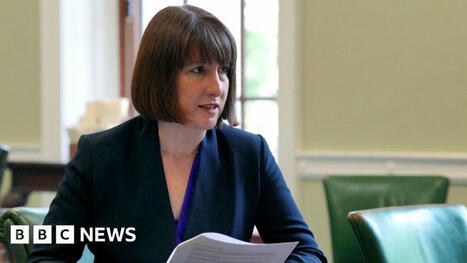








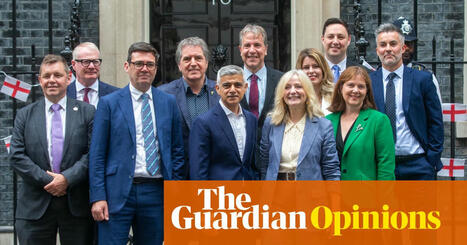

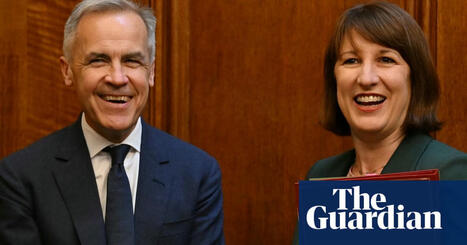








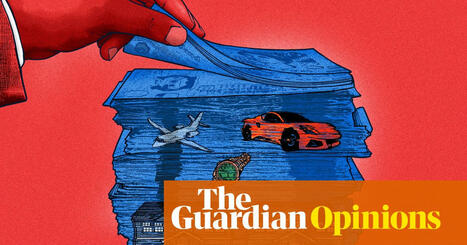
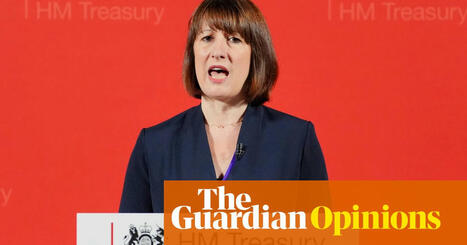


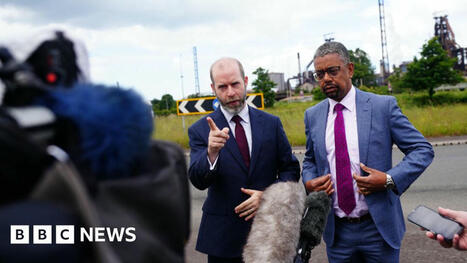






The Chancellor, Rachel Reeves, is likely to announce that the public finances are in a worse state than the previous government have suggested. Naturally, the outgoing government have denied this, but the Labour Party are of the view that previous spending pledges have not been met leaving public services underfunded.